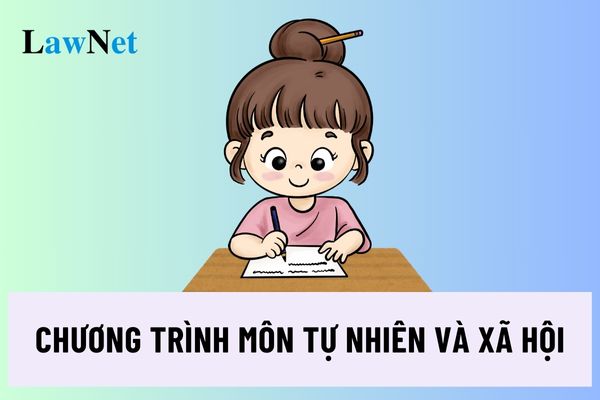What are objectives and requirements for the program for natural and social sciences in the literacy eradication program in Vietnam?
What are objectives for the program for natural and social sciences in the literacy eradication program in Vietnam?
Based on Section 1, Part 2 of the Literacy Eradication Program issued with Circular 33/2021/TT-BGDDT, the objectives of the natural and social sciences program in the literacy eradication program are as follows:
General Objectives
The Natural and Social Sciences program contributes to forming and developing in learners a love for humans, nature, and homeland; diligence; awareness of personal, family, and community health protection; frugality, property preservation, and protection; responsibility towards the living environment; general competencies and scientific competence.
Objectives for Phase 1
The Natural and Social Sciences program aims to help learners:
- Form and develop: love and pride for nature and homeland; affectionate care for family members, friends, teachers, and others; diligence and honesty; responsibility towards oneself, family, community, and the living environment; frugality, property preservation, and protection.
- Present, at a simple level, some features, roles of certain objects, phenomena, and commonly encountered relationships in the surrounding natural and social environment, such as health and safety in life, the student's relationship with family, school, community, and the natural world, through various forms of expression.
- Compare, select, classify some simple objects, phenomena in nature and society according to some criteria.
- Formulate simple questions, observe, and perform simple practices to understand certain objects, phenomena, and relationships in the surrounding natural and social environment.
- Comment on the external features, compare similarities and differences between surrounding objects and phenomena, and their changes over time in a simple manner through observational and practical outcomes.
- Explain, to a simple extent, certain objects, phenomena, and relationships in the surrounding natural and social environment.
- Analyze situations related to safety issues, personal health, others, and the surrounding living environment.
- Solve problems and propose appropriate behaviors in related situations (at a simple level); exchange and share with those around to implement together; comment on the behaviors in each situation.

What are objectives and requirements for the program for natural and social sciences in the literacy eradication program in Vietnam? (Image from the Internet)
What are requirements for the program for natural and social sciences in the literacy eradication program in Vietnam?
According to the regulations in Section 2, Part 2 of the Literacy Eradication Program issued with Circular 33/2021/TT-BGDDT, the requirements for the program for natural and social sciences in the literacy eradication program in Vietnam are:
In terms of qualities
The Natural and Social Sciences program forms and develops in learners the main qualities: patriotism, compassion, diligence, honesty, responsibility.
In terms of competencies
The Natural and Social Sciences program forms and develops in learners general and specific competencies appropriate to the subject and grade levels, including: self-reliance and self-learning ability, communication and cooperation ability, problem-solving and creative ability, and scientific competence.
The components of scientific competence include scientific cognition, understanding of the surrounding natural and social environment, and applying learned knowledge and skills.
What are general orientations of the educational methods for natural and social sciences in the literacy eradication program in Vietnam?
According to the regulations in Section 4, Part 2 of the Literacy Eradication Program issued with Circular 33/2021/TT-BGDDT, the general orientations of the educational methods for natural and social sciences in the literacy eradication program in Vietnam are as follows:
The educational methods for Natural and Social Sciences are conducted according to the following orientations:
- Teaching connected with reality, leveraging learners' knowledge and experience about the surrounding life; fostering scientific curiosity, aiming for the development of positive relationships between learners and the surrounding natural and social environment; guiding learners on how to ask questions, gather information and seek evidence, and use the collected information and evidence to make objective and scientific observations and conclusions.
- Organizing learning through observation for learners. Objects of observation include natural and social objects, phenomena from pictures, real objects, videos, and the surrounding environment. Observational activities aim to develop skills of noticing, comparing, classifying, analyzing, reasoning, and generalizing observed things in learners.
- Organizing experiential learning for learners. Learners perform investigation and exploration activities, apply knowledge to real-life situations, thereby learning how to solve common problems; behave appropriately considering personal health and safety, and that of those around; protect the living environment.
- Organizing learning through interaction for learners. Learners engage in discussion, practice, and handle real-life situations, to form and develop problem-solving abilities, collaboration, communication, and confidence.
- Select, coordinate, and flexibly, creatively apply educational methods suitable to the educational goals, content, students, and specific conditions.

